Should a male politician be allowed to take paternity leave?
- Published
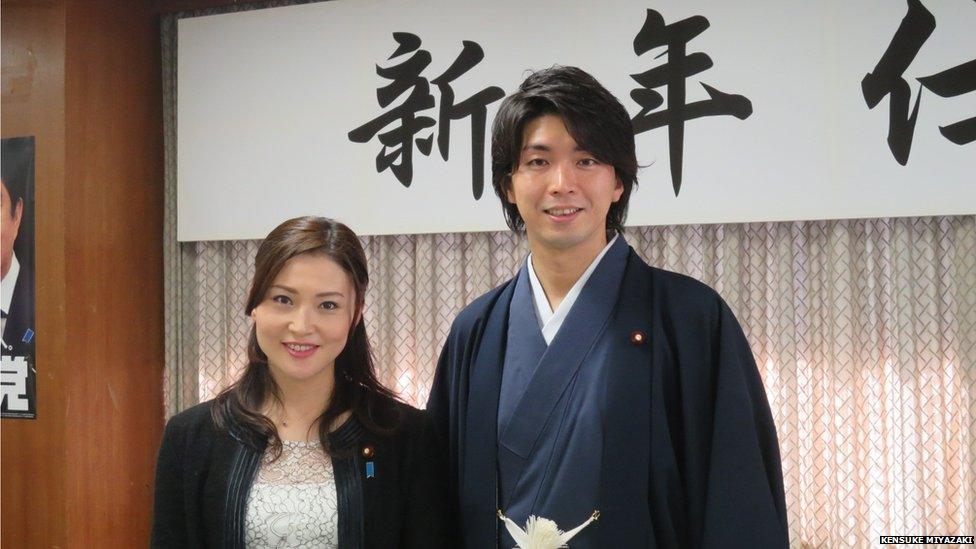
LDP lawmakers Kensuke Miyazaki and Megumi Kaneko have sparked a debate whether a male politician should go on paternity leave
A request to take paternity leave could, quite literally, make or break the career of 34-year-old Kensuke Miyazaki as a politician.
He is the first ever male lawmaker in Japan to request time off when his child will be born in February.
For a country known for its male-dominated business culture, Japan offers, as the OECD puts it, external, "by far the most generous paid father-specific entitlement".
New fathers - if employed - are entitled to 52 weeks of paid leave and they would earn nearly 60% of their salary. In comparison, the UK offers 2 weeks paid leave with a fifth of their average salary and the US doesn't offer any.
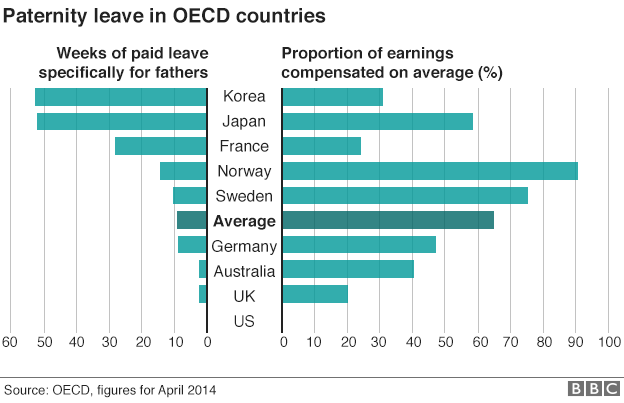
Japan's paternity leave is considered "the most generous" by the OECD
But only 2.3% of those eligible took it in Japan last year. The government wants to raise it to 13% by 2020.
"It is still a long way off so I thought by declaring that I want to take paternity leave as a lawmaker, I could set an example and cause a bit of a stir," Mr Miyazaki told the BBC.
And he did just that.
Renho from the Democratic Party of Japan criticised both Mr Miyazaki and his wife and fellow LDP lawmaker Megumi Kaneko in her tweet, external: "As members of Parliament, their job is not to go on paternity leave graciously with full-pay but to change the law so that ordinary citizens are protected."
From the public, there were comments such as "Does he realise that if a lawmaker goes on paternity leave, his voters' voice won't be reflected in parliament?" and "Paternity leave is for workers. Lawmakers are not workers. They were elected by voters so they should serve the people. If they want to go on paternity leave, they should resign."
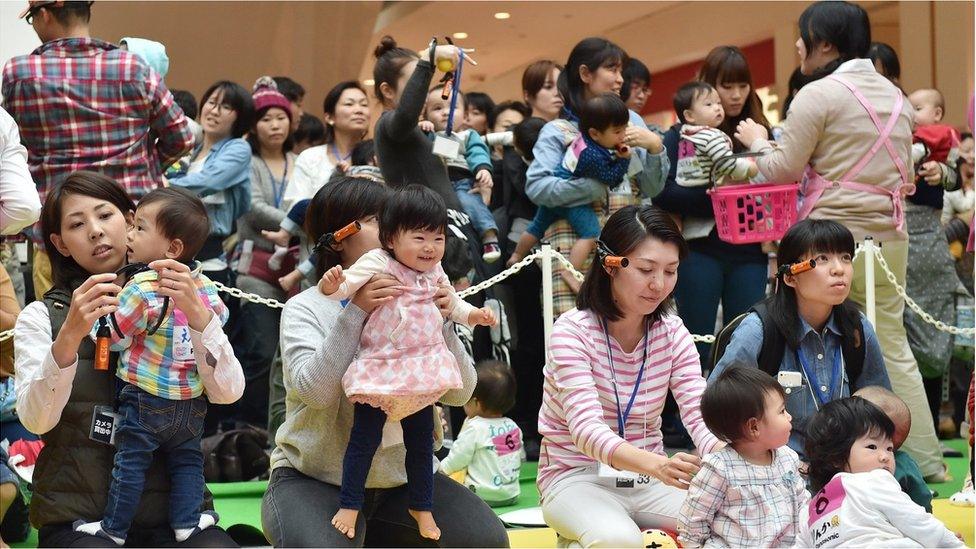
Most fathers do not take paternity leave in Japan, leaving the child-rearing to the mothers
Popular author and manga artist Yoshinori Kobayashi has criticised the couple, calling them "foolish" and stating that paternity leave is a luxury that only the wealthy can afford to take.
"The annual salary of lawmakers is apparently 20 million yen so this foolish couple make 40 million together," Mr Kobayashi wrote in his blog, external. "But from the boss of a small private company's point of view, if it becomes norm for his employees to take paternity leave, he has no choice but to go bankrupt."
Mr Miyazaki says he didn't make the decision lightly.
"To be honest, I am worried about the next election because some of my supporters who voted for me aren't thrilled about my decision either," he said.
"But what I am fighting against is not the opposition parties. I am fighting the declining number of children because studies show that the birth rate goes up when fathers are more involved in raising children."
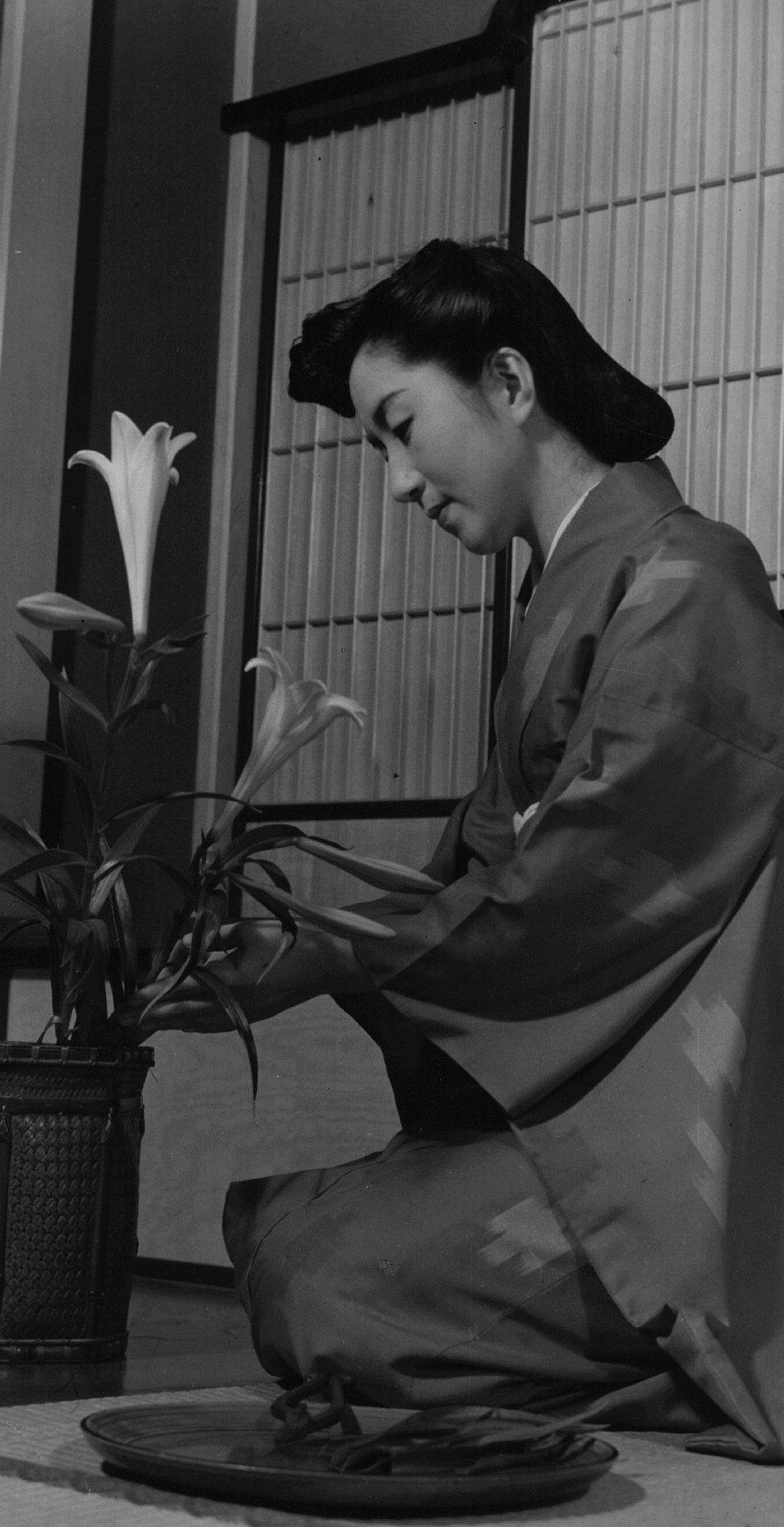
The art of being a home-maker in Japan is celebrated in this picture from 1930 with flower-arranging
Beneath the criticism against a lawmaker wanting to go on paternity leave also lies deeply-rooted gender bias.
"For hundreds of years, we've had a traditional view of gender roles so men work and earn the living while raising children has been considered a women's job," said Tetsuya Ando from non-profit organisation Fathering Japan.
"Another reason is education. Until early 1990s, only girls received homemaking education so men don't consider whatever they didn't learn as not part of their role," Assistant Professor Toshiyuki Tanaka from Musashi University also said.
But young fathers who have received more equal education think differently.
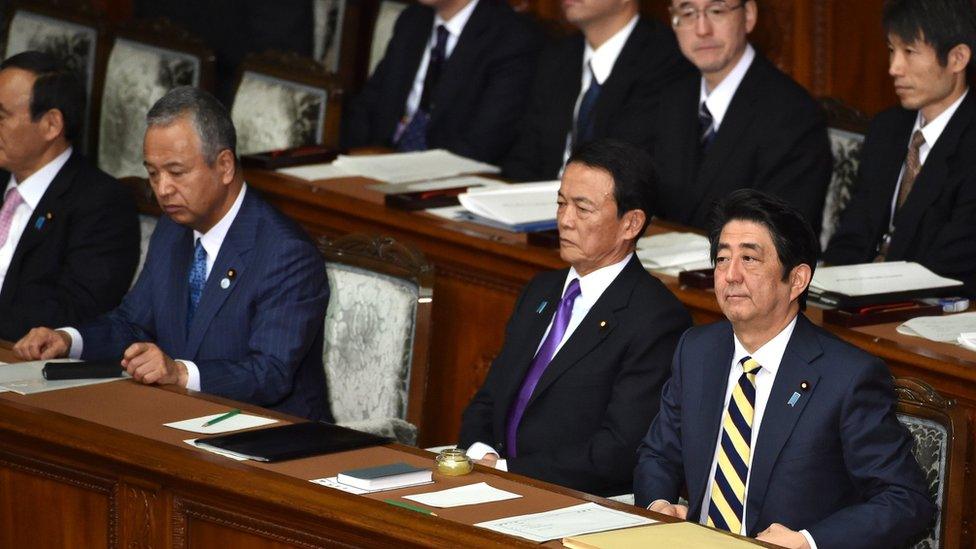
Japan's political class is overwhelmingly male and does not take paternity leave
"In our survey, nearly half of new fathers said they wanted to take paternity leave," said Mr Ando from Fathering Japan.
There is now a new popular term "iku-men" or men who take part in childrearing. My colleague from BBC Japan's sales team Masahiro Matsui is one of them and he took an entire year off to look after his daughter with his wife Ayako.
"It was harder work than my job but it was wonderful to be able to share the first year of raising our daughter with my wife," he said.
But not only none of his friends knew that a father could take paternity leave for so long, but they also thought it was because he worked for a non-Japanese company.
Critics of Mr Miyazaki say he is just chasing fame by publicising his decision. But he has at least put the issue in the spotlight.